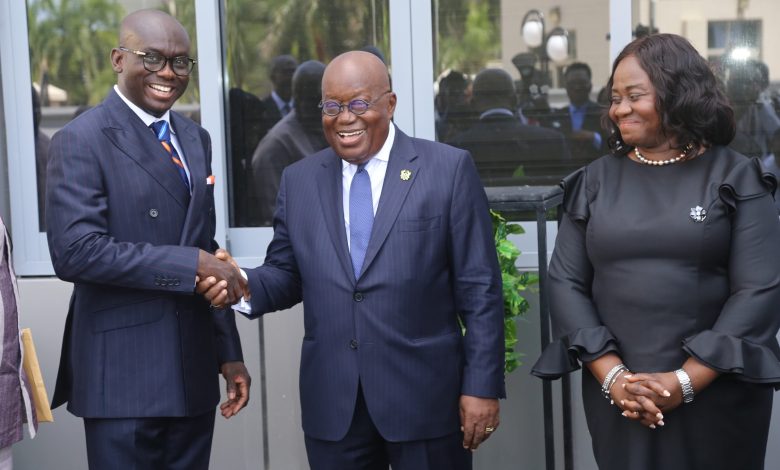
President of the Republic, Nana Addo Dankwa Akufo-Addo, has reaffirmed his administration’s unwavering commitment to combating corruption and implementing comprehensive judicial reforms.
Speaking before a distinguished audience of government officials, legal professionals, and dignitaries, including the Attorney General the President outlined the significant legislative and administrative measures taken to enhance transparency, accountability, and the rule of law in Ghana.
The President began by highlighting the importance of the rule of law as the cornerstone of a thriving democracy. He emphasized that the commissioning of the Law House is not merely a celebration of a new building but a testament to the nation’s dedication to upholding justice and equality for all citizens. “The rule of law ensures that no one is above the law, that justice is administered fairly and impartially, and that the rights and freedoms of every citizen are protected,” he stated.
Central to the administration’s anti-corruption efforts has been the passage of several critical pieces of legislation. One such achievement is the Right to Information Act, 2019, which fosters a culture of transparency in public affairs by granting citizens access to information held by public institutions. The Act, which successive governments had failed to pass, is now being fully implemented, with information officers trained across various government ministries, departments, and agencies to support its application. “Access to information is a vital tool in the fight against corruption,” President Akufo-Addo noted, “and this Act ensures that the right to information is not just a theoretical concept but a practical reality.”
Another significant legislative measure is the Witness Protection Act, 2018, which established a Witness Protection Agency to offer protection to individuals cooperating with law enforcement in the investigation and prosecution of cases, particularly those involving public officials. This Act, the President explained, is crucial for ensuring that witnesses can come forward without fear of retribution, thereby strengthening the integrity of the judicial process.
President Akufo-Addo also highlighted the Criminal Offences (Amendment) Act, 2020, which categorizes corruption as a felony and imposes stiffer penalties, including imprisonment of up to twenty-five years. This amendment, he said, reflects the administration’s zero-tolerance stance on corruption and its commitment to imposing severe consequences on those found guilty of corrupt practices.
In addition to these legislative measures, the administration has undertaken several administrative actions to bolster the fight against corruption.
A Memorandum of Understanding on information exchange and collaboration in combating corruption and crime has been signed by various government agencies, including CHRAJ, EOCO, the Office of the Attorney-General, and the Police Service. This collaborative effort aims to enhance coordination and information sharing among key institutions, thereby increasing the effectiveness of anti-corruption initiatives.
The President also emphasized the pivotal role of technology in combating corruption. The introduction of digital platforms for public procurement processes has reduced human intervention and minimized opportunities for corrupt practices. These platforms have increased transparency, efficiency, and competitiveness in public procurement, ensuring that public resources are used judiciously for the benefit of all Ghanaians.
“By leveraging technology, we are creating systems that are less susceptible to manipulation and corruption,” President Akufo-Addo stated.
Addressing accusations from political opponents, President Akufo-Addo reiterated his commitment to due process and the rule of law. He rejected claims that he acts as a “clearing agent” for corruption, stating unequivocally that allegations alone are not sufficient to condemn public officials. “For my part, I will not set aside due process and the rules of natural justice on the altar of the fight against corruption, no matter how much opprobrium this incurs for me,” he asserted.
The President recounted a personal anecdote to underscore his commitment to the rule of law. He shared the story of Tawia Adamafio, a former Minister in Ghana’s first republic, who was tried before a Special Criminal Court he had helped establish. Despite the political context, the court upheld the law and found Adamafio innocent of treason charges, demonstrating the importance of adhering to legal principles even in challenging times. “The rule of law is the best protection of individual liberty in good times and in bad times,” President Akufo-Addo concluded.










